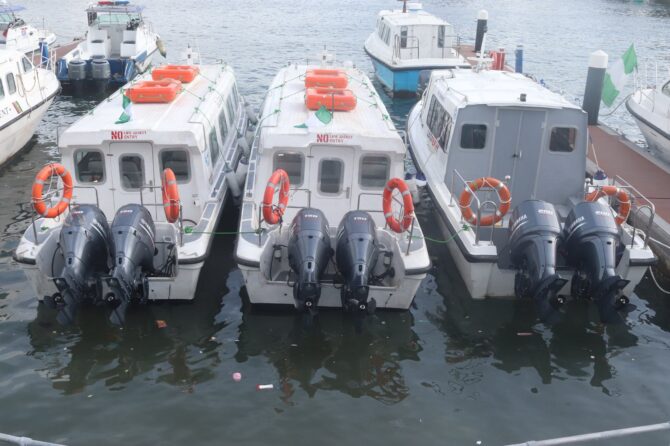Nigeria, as one of Africa’s economic powerhouses, boasts a diverse and dynamic manufacturing sector that plays a pivotal role in the country’s overall economic development. This blog delves into the nuanced interplay of resilience and diversity within this sector, exploring the investment opportunities that arise as a result.
In the ever-evolving global economic landscape, resilience and diversity stand out as crucial components of successful investment strategies. This is particularly true for the Nigerian manufacturing sector, which faces a myriad of challenges, necessitating adaptive approaches for sustainable growth. This blog seeks to unravel how these twin pillars can unlock promising investment avenues, ensuring stability and prosperity in a dynamic market.
Resilience in Nigerian Manufacturing
A.Challenges Faced by the Manufacturing Sector
Nigeria’s manufacturing sector is not without its challenges – from infrastructural constraints to regulatory complexities. Understanding the hurdles is pivotal in appreciating the resilience exhibited by manufacturers in overcoming these obstacles. This section sheds light on the challenges that have shaped the sector and explores how resilience has been a driving force for sustained growth.
B.Examples of Resilience in Overcoming Adversities
Real-world examples showcase the tenacity of Nigerian manufacturing entities in the face of adversity. Whether navigating economic downturns, supply chain disruptions, or other unforeseen challenges, companies have demonstrated resilience by adapting strategies to stay afloat. Examining these cases provides valuable insights into the strategies that breed resilience within the sector.
C.Economic Factors Influencing Resilience
Resilience isn’t solely about bouncing back from setbacks but also about thriving in a changing economic landscape. This subsection delves into the economic factors that influence the resilience of the Nigerian manufacturing sector. From inflationary pressures to global market dynamics, understanding these elements is crucial for investors seeking to align their strategies with the sector’s capacity to weather storms.
Diversity in Nigerian Manufacturing Sub-Sectors
A.Overview of Key Manufacturing Sub-Sectors in Nigeria
The Nigerian manufacturing landscape is a tapestry of diverse sub-sectors, each contributing uniquely to the nation’s economic mosaic. This section provides an insightful overview of these key sub-sectors, ranging from food and beverages to textiles and automobiles, unravelling the distinctive characteristics that define each.
B.Analysis of Diversity Within Each Sub-Sector
Within each sub-sector lies a rich tapestry of companies, products, and market dynamics. Delving into this diversity is essential for investors aiming to tailor their portfolios strategically. This part of the blog undertakes a granular analysis of the nuances within prominent sub-sectors, offering a comprehensive understanding of the multifaceted nature of Nigerian manufacturing.
C.Opportunities and Risks Associated with Diverse Investments
Diversity not only presents opportunities but also introduces risks. This subsection explores the potential avenues for investment within the varied sub-sectors, identifying promising prospects. Simultaneously, it addresses the associated risks, providing investors with a balanced perspective to make informed decisions in navigating the intricacies of a diverse manufacturing landscape.
Investment Landscape
A.Current State of Investments in Nigerian Manufacturing
An exploration of the present investment scenario sets the stage for informed decision-making. This subsection delves into the current state of investments in Nigerian manufacturing, examining trends, capital flows, and the overall investor sentiment. Understanding the existing landscape is pivotal for prospective investors seeking to align their strategies with prevailing market dynamics.
B.Case Studies of Successful Investments
Real-world success stories offer invaluable lessons. This part of the blog presents case studies that highlight instances where strategic investments in the Nigerian manufacturing sector have yielded significant returns. By dissecting these success stories, investors can glean insights into the factors that contribute to prosperous ventures and apply them to their own investment endeavours.
C.Emerging Trends and Potential Growth Areas
The dynamism of the manufacturing sector necessitates a forward-looking approach. This subsection explores emerging trends and identifies potential growth areas within Nigerian manufacturing. From technological advancements to shifts in consumer behaviour, understanding these trends is instrumental in positioning investments for long-term success in a sector that continues to evolve.
Government Initiatives and Policies
A.Role of Government in Supporting Resilience and Diversity
Government policies play a pivotal role in shaping the trajectory of the manufacturing sector. This section examines the proactive measures taken by the Nigerian government to foster resilience and diversity within manufacturing. From incentives to regulatory frameworks, understanding the government’s role provides investors with a crucial context for their investment decisions.
B.Impact of Policies on Investment Decisions
Government policies have a direct bearing on the risk and reward profile of investments. This subsection delves into the specific impact of governmental initiatives on investment decisions within the manufacturing sector. Investors will gain insights into how policy changes can create opportunities or pose challenges, influencing the overall investment landscape.
C. **Future Outlook for Government Interventions**
Anticipating the future direction of government interventions is essential for investors charting their course in the manufacturing sector. This part of the blog explores the potential trajectory of policies, offering perspectives on how governmental actions might shape the investment landscape in the coming years. Such foresight is crucial for aligning investment strategies with the evolving regulatory environment.
Risks and Mitigation Strategies
A.Identifying Risks in the Nigerian Manufacturing Market
Every investment landscape comes with inherent risks, and the Nigerian manufacturing sector is no exception. This section outlines the various risks investors may encounter, ranging from market volatility to geopolitical factors. Identifying these risks is the first step toward developing effective strategies for mitigating their impact on investment portfolios.
B.Strategies for Mitigating Investment Risks
Mitigating risks requires a proactive approach. Here, we delve into a spectrum of strategies designed to counterbalance potential challenges in the Nigerian manufacturing market. From diversification to thorough due diligence, understanding and implementing these risk mitigation strategies are essential for investors aiming to safeguard their investments.
C.Importance of Due Diligence in Decision-Making
In the complex landscape of Nigerian manufacturing, due diligence emerges as a linchpin for sound decision-making. This subsection emphasises the critical role of due diligence in assessing potential investments. From financial evaluations to market analysis, a comprehensive due diligence process ensures that investors are well-informed, enabling them to navigate the intricate web of risks and opportunities with confidence.
Case Studies
A.Successful Investment Stories in Nigerian Manufacturing
Concrete examples often provide the most compelling insights. In this section, we spotlight successful investment stories within the Nigerian manufacturing sector. These case studies not only showcase instances of astute decision-making but also offer tangible evidence of how resilience, diversity, and strategic planning can yield profitable outcomes for investors.
B.Lessons Learned from Previous Investment Experiences
Behind every success lies a set of valuable lessons. By analysing the triumphs and challenges faced in past investment experiences, this subsection distils key takeaways. Investors can draw on these lessons to inform their own strategies, leveraging the wisdom gained from others’ experiences to enhance the likelihood of positive outcomes in the dynamic Nigerian manufacturing landscape.
Outlook and Recommendations

A.Future Prospects for the Nigerian Manufacturing Sector
Looking ahead is imperative for investors seeking sustained growth. This part of the blog offers insights into the future prospects of the Nigerian manufacturing sector. Emerging trends, technological advancements, and global market dynamics are considered to provide a forward-looking perspective that can guide investment decisions in the years to come.
B.Investment Recommendations for Resilience and Diversity
Building on the insights gained throughout the blog, this subsection offers specific investment recommendations tailored to enhance resilience and leverage diversity within the Nigerian manufacturing sector. From strategic sectors to risk-mitigation strategies, these recommendations aim to empower investors with actionable insights for crafting robust investment portfolios.
C.Closing Thoughts on the Potential for Growth and Success
In the final segment of this section, we bring together the key findings and recommendations. Closing thoughts emphasise the immense potential for growth and success in Nigerian manufacturing, urging investors to approach this dynamic sector with a combination of foresight, adaptability, and a commitment to resilience and diversity.
Additional Resources and Further Reading
A.Explore In-Depth Insights
For readers eager to delve deeper into the world of Nigerian manufacturing investments, consider exploring additional resources. From industry reports to scholarly articles, there’s a wealth of information that can provide a more nuanced understanding of the sector and help refine investment strategies.
B.Connect with Industry Experts
Networking and engaging with industry experts can offer valuable perspectives. Seek out forums, conferences, or webinars where professionals in the Nigerian manufacturing sector gather. Establishing connections with those who have first-hand experience can provide real-time insights and guidance for potential investors.
C.Stay Informed on Market Updates
The world of investments is dynamic, and staying informed is key. Regularly follow market updates, economic reports, and industry news to stay abreast of any developments that might impact the Nigerian manufacturing sector. Being well-informed positions investors to make timely and well-calculated decisions.
Conclusion
As we conclude this exploration into the investment opportunities across Nigerian manufacturing sub-sectors, we extend our appreciation for your engagement. The resilience and diversity inherent in this sector create a canvas of potential for those willing to navigate its complexities. We hope this blog has equipped you with valuable insights and inspiration for your journey into the exciting realm of Nigerian manufacturing investments. Happy investing!











